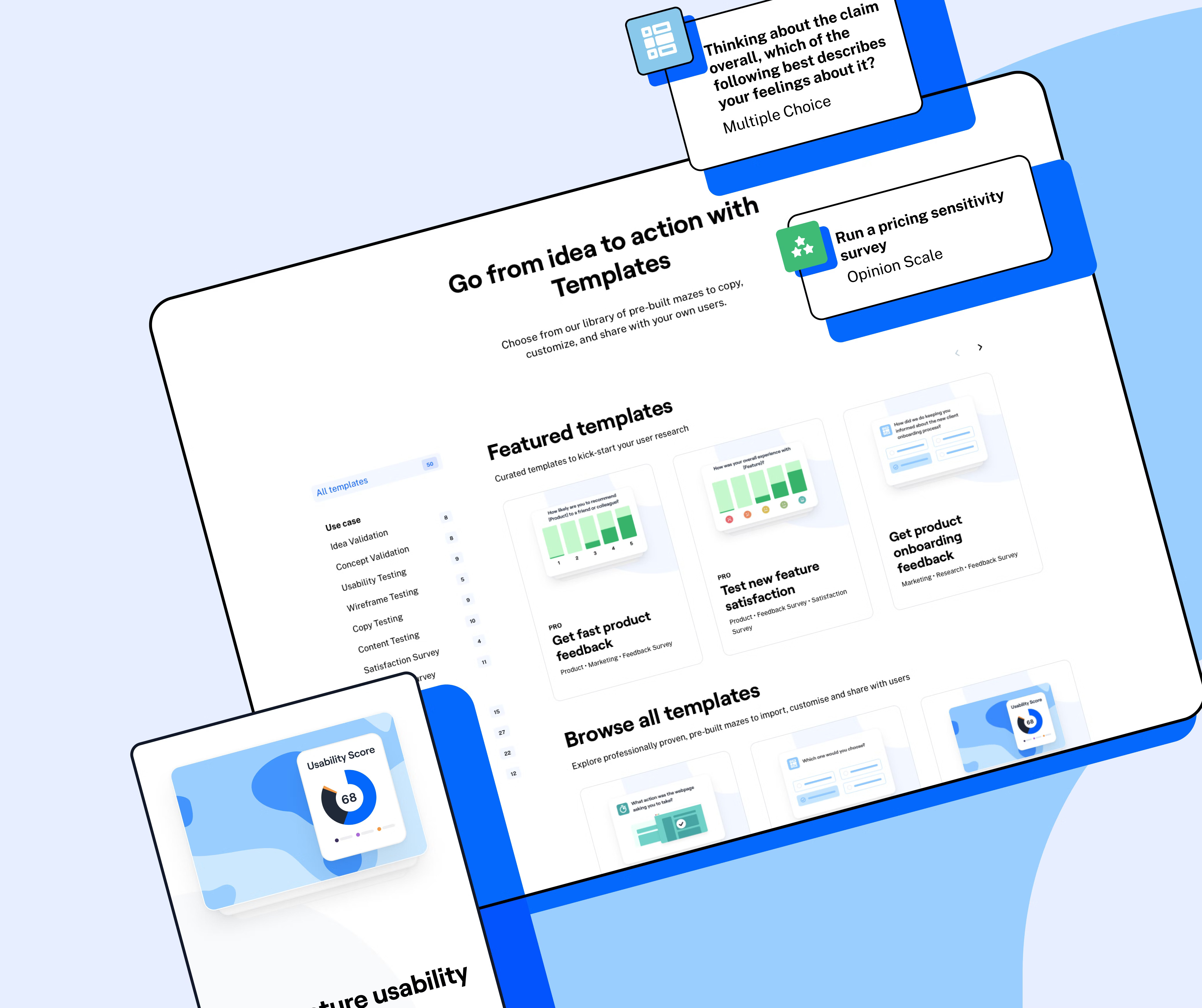Product research generally involves determining whether an idea for a new product might be successful and how to best develop and sell that product. It’s a straightforward process, in theory, but the basic definition belies the barriers that can crop up. Research is often costly — software-as-a-service companies spend an estimated 23% of their revenue on R&D, for example — and there’s no guarantee that it’ll lead to a successful outcome. Forty-two percent of companies in a recent CB Insights poll cited “no market need” as the reason that one of their products failed to gain traction.
The risky nature of product research led Jonathan Widawski and Thomas Mary — software developers by trade — to launch Maze, a software product research platform that facilitates prototype tests and surveys. As opposed to some platforms on the market, Widawski and Mary emphasize that Maze was designed with entire product teams in mind — not just traditional user researchers with specialized backgrounds.
Maze is Widawski’s second venture after Pin.gg, a video game messaging service focused on privacy. Before founding Pin.gg and Maze, Widawski was a user experience consultant and a project manager at Archibald & Abraham, a communications and A/V production agency.
“Building user-facing experiences is always a risk. And the riskier the decision, the more data we need to fully commit. It’s not easy, however, to validate ideas and get actionable, quantifiable user insights to make decisions confidently, especially before you have a live product or website,” Widawski told TechCrunch in an email interview. “Maze began with the belief that product design teams should have easy access to data during the design phase. Since then, we have evolved our vision to empower anyone in product teams to test, learn and act rapidly.”
Like other product research platforms, Maze lets product teams observe how users interact with a product and generate reports. With Maze, team members can leverage tools like Adobe XD and Sketch to design product tests and surveys and then generate a shareable link to the tests to enroll participants.
Maze recently launched Reach, a tool that lets customers create a database of research participants, send research studies via email campaigns and collect the resulting data. Another newer feature, Clips, captures video and screen recordings of people testing a product.

Image Credits: Maze
Plenty of user research tools exist, like UserLeap, Airkit and even SurveyMonkey. One — UserZoom — raised $100 million last year, driving home the point that the space remains highly competitive. That’s because there’s likely some truth to vendors’ assertions that product research, difficult as it is, can prevent expensive mistakes down the line. According to a Strategic Data Consulting study, user experience investments made in a product’s conceptual phase can reduce development cycles by 33% to 50%.
So what differentiates Maze besides its ostensibly ease of use? Growth, Widawski said. While declining to reveal revenue numbers, he disclosed that over 60,000 brands now use Maze, including Hertz, Sony, Fidelity Investments, BNY Mellon and Nubank.
“During the pandemic, the need for unmoderated and remote research grew because teams were no longer able to run moderated, face-to-face research easily. This change in circumstances meant product teams had the need for new solutions that addressed this new way of working. As a consequence, Maze grew 6x during the pandemic,” Widawski said. “Maze empowers product teams to collect user insights rapidly and pre-development, reducing the risk of releasing products and features that are not informed by data … Maze is uniquely positioned to empower companies to run more product research, as well as democratize this product research across the wider product team.”
Laying runway for growth, Maze today closed a $40 million Series B round led by Felicis with participation from Emergence, Amplify, Partech, Seedcamp, Atlassian Ventures, Zoom and HubSpot Ventures. (Widawski said that Atlassian and Zoom are strategic investors.) The fresh cash brings the company’s total raised to $60 million, and Widawski says that it’ll be put toward developing new solutions to “help solve for new use cases” along the product development process.
“We’re planning to invest in new product solutions, workflow integrations and more advanced features to help democratize product research across larger organizations,” Widawski said. “We’ll keep growing our teams to focus on improving our core product as well as expand to new use cases along the product development process and, ultimately, help streamline product research workflows.”















 English (US) ·
English (US) ·